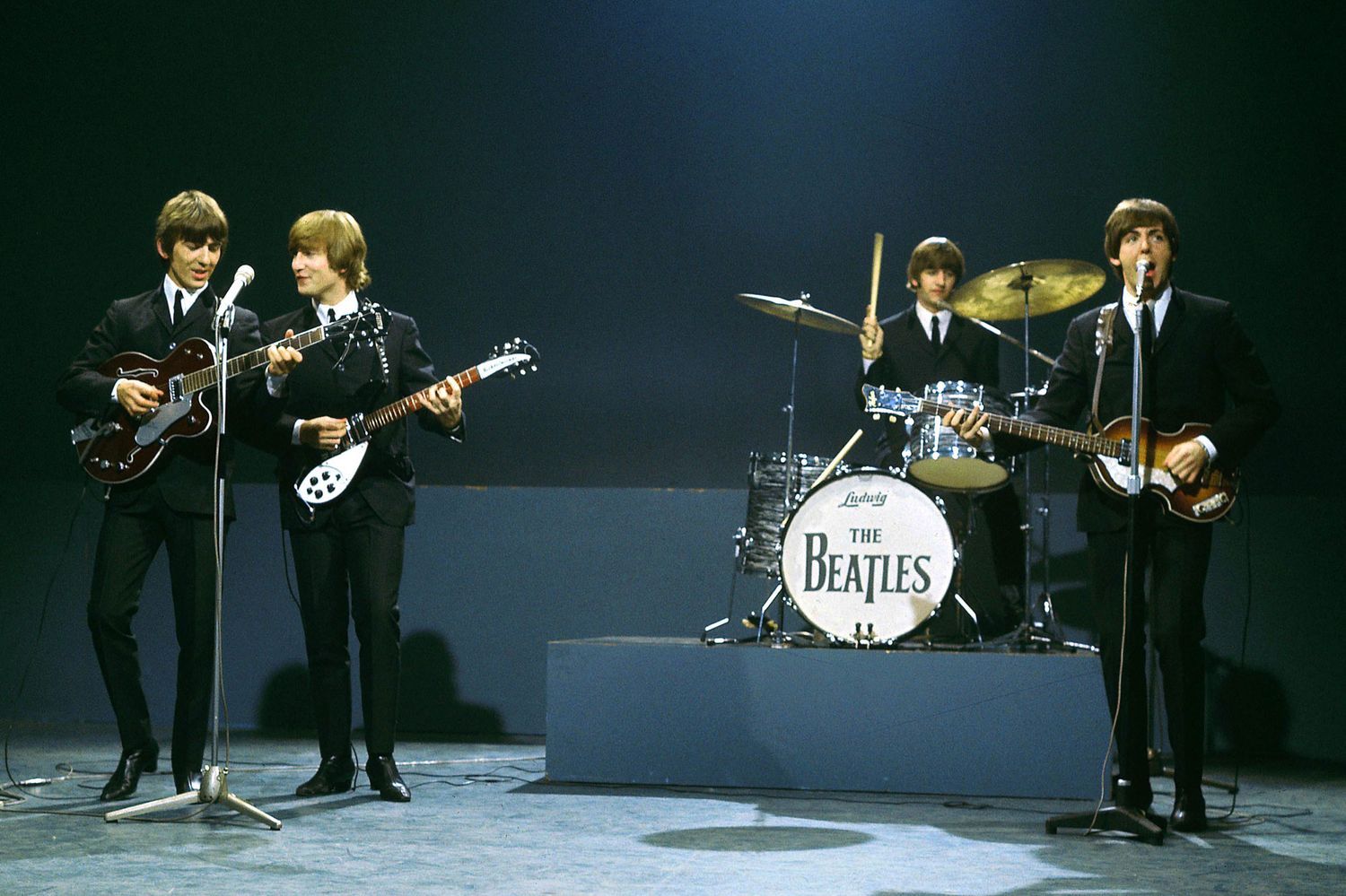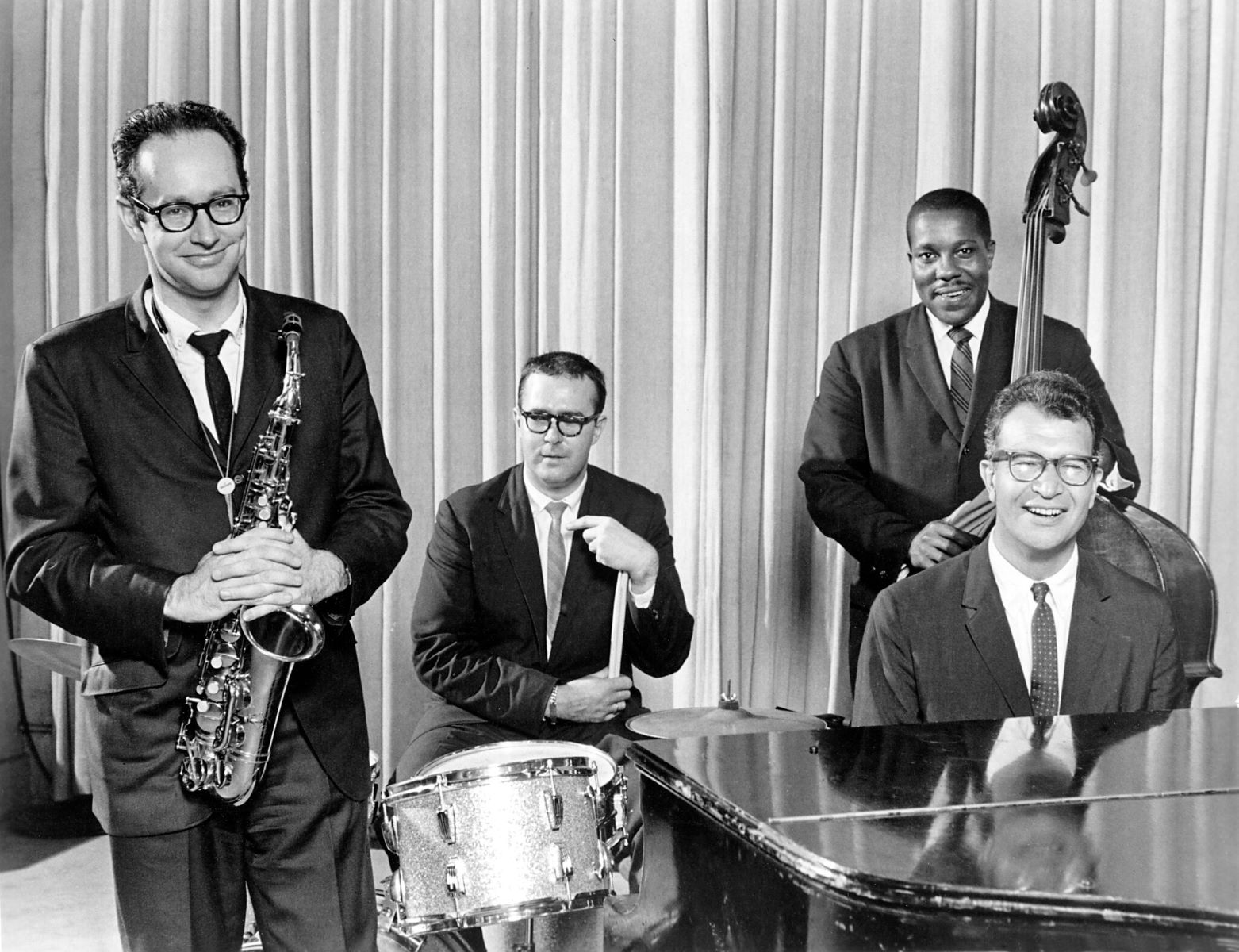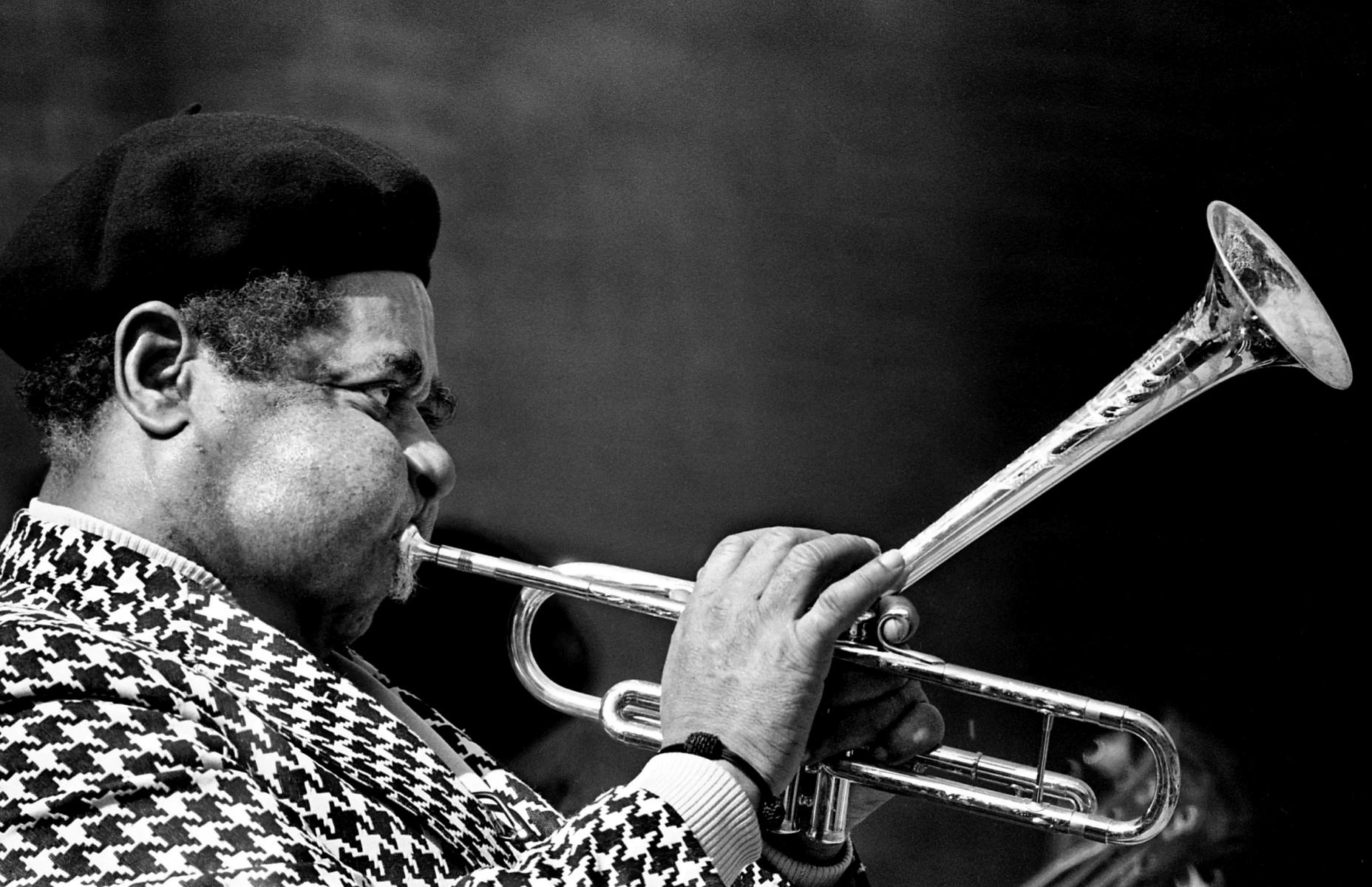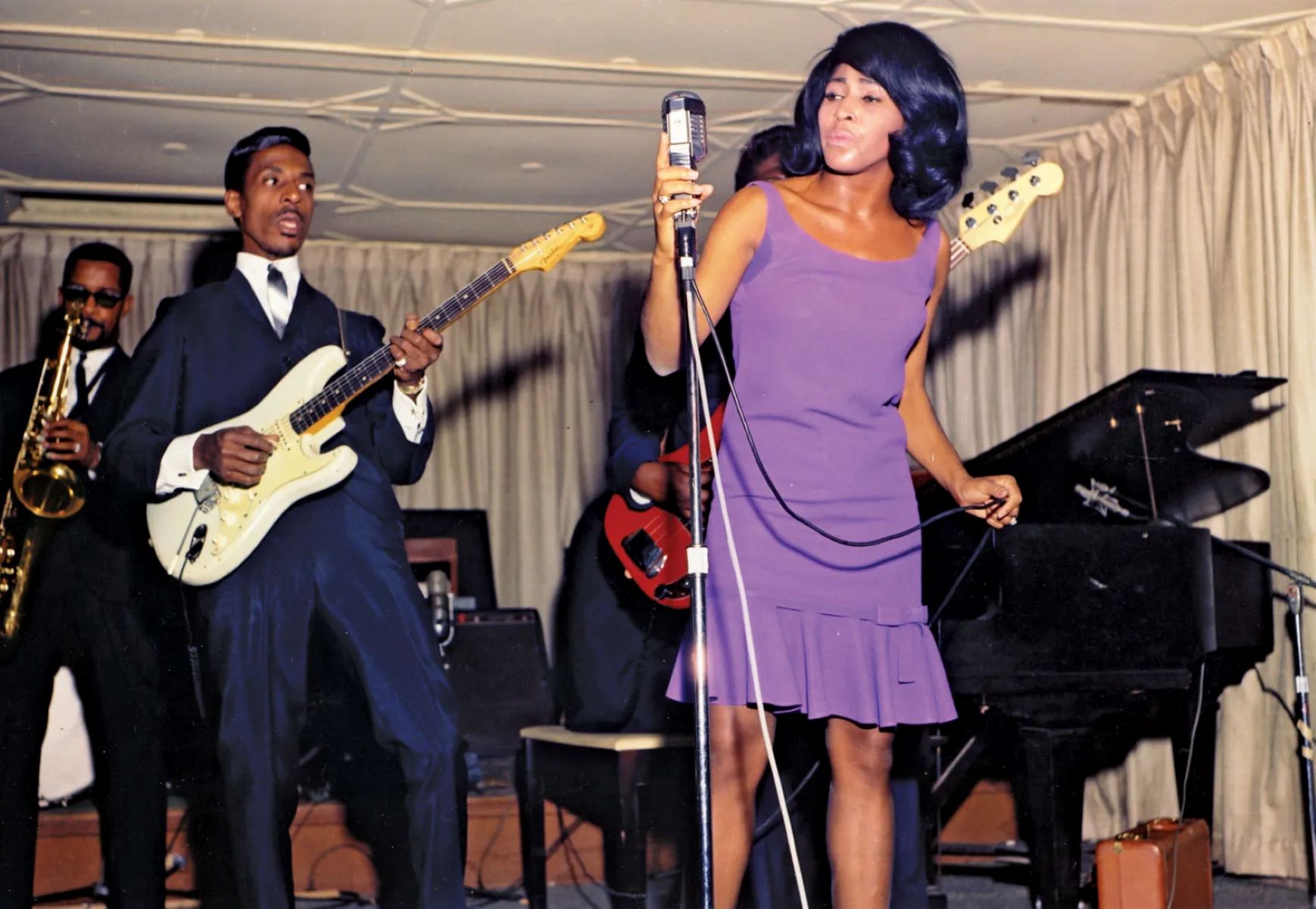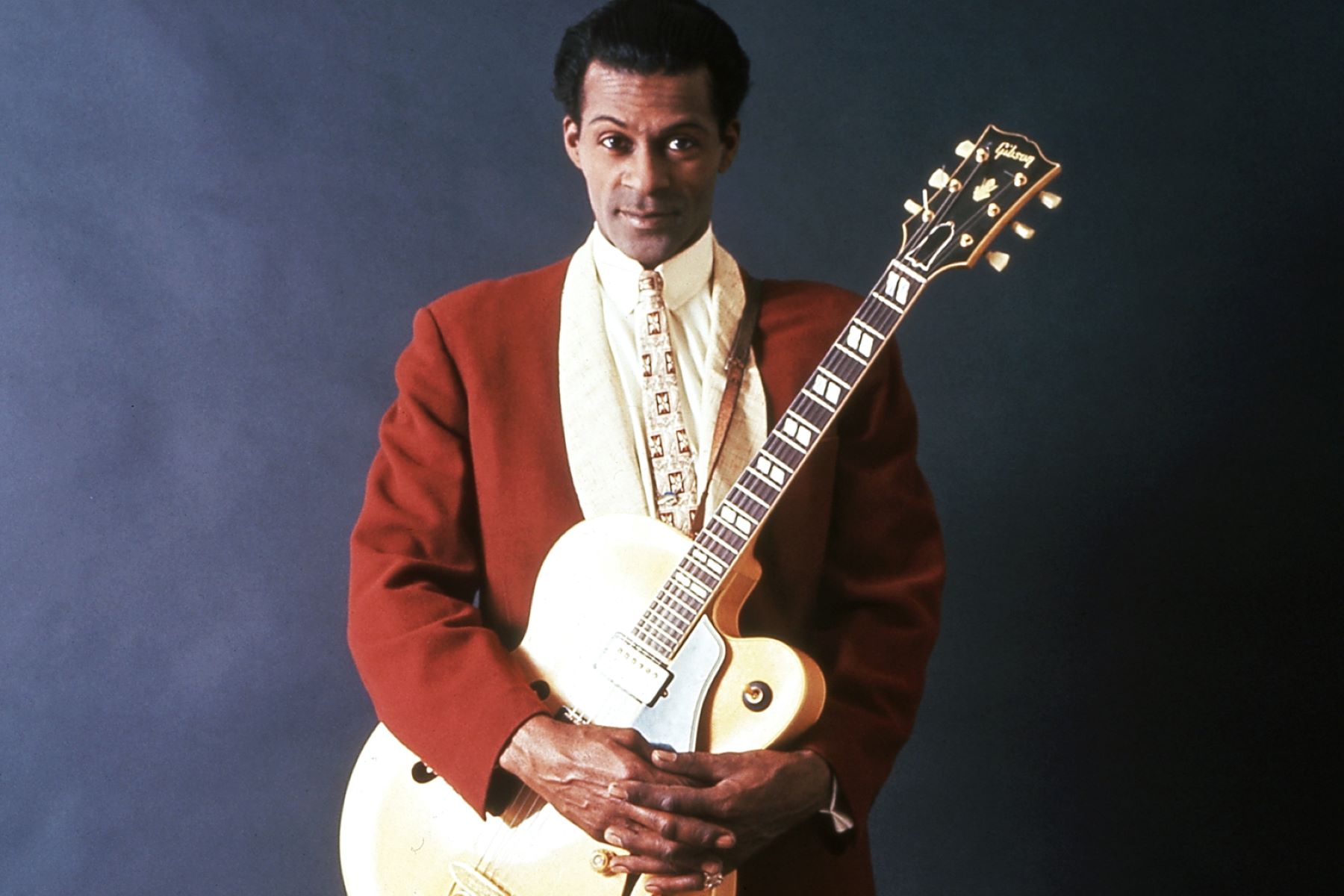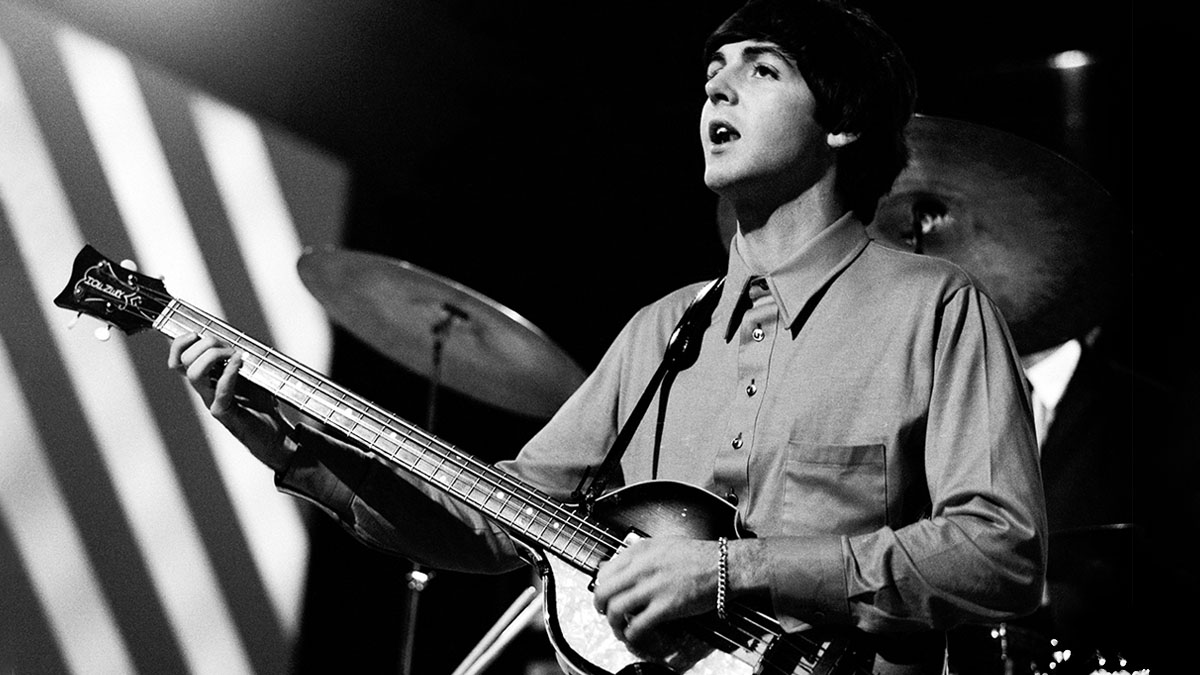Home>Production & Technology>Musician>Which Musician Is Often Referred To As The Fifth Beatle
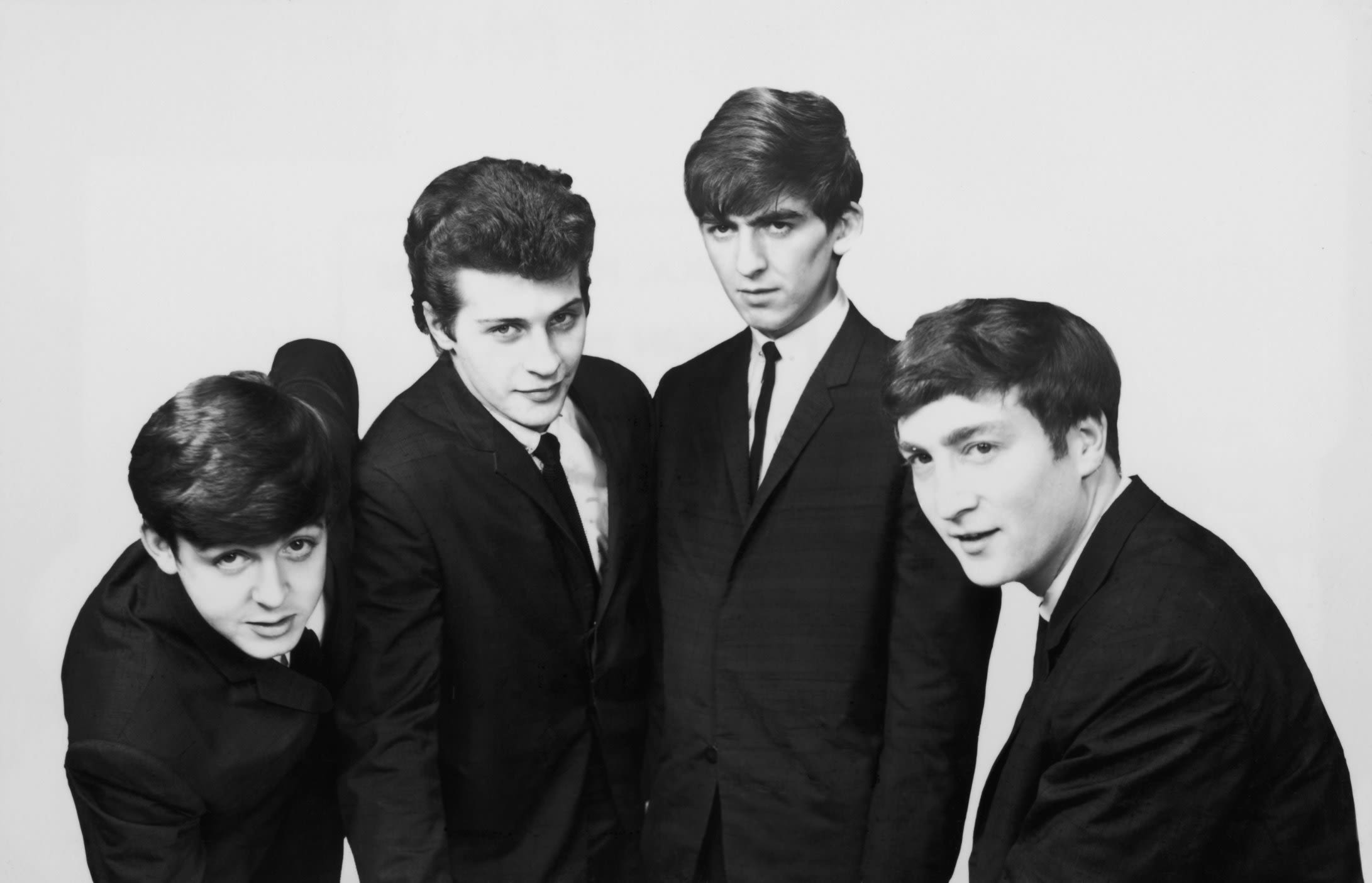

Musician
Which Musician Is Often Referred To As The Fifth Beatle
Published: January 28, 2024
Discover the iconic musician who is often hailed as the "Fifth Beatle" and learn about their significant contributions to the legendary band.
(Many of the links in this article redirect to a specific reviewed product. Your purchase of these products through affiliate links helps to generate commission for AudioLover.com, at no extra cost. Learn more)
Table of Contents
- Introduction
- The Origins of the Term “Fifth Beatle”
- The Contenders for the Title
- Brian Epstein: The Manager Extraordinaire
- George Martin: The Producer and Arranger
- Stuart Sutcliffe: The Original Fifth Beatle
- Billy Preston: The Fifth Beatle during the Let It Be Sessions
- Other Musicians Claiming the Title
- Conclusion
Introduction
Throughout the legendary career of the Beatles, there has been much speculation and debate over the identity of the “Fifth Beatle.” The term refers to an individual who, while not an official member of the band, had a significant impact on their success and artistic direction. This honorary title has been bestowed upon various musicians and individuals who played influential roles in the Beatles’ journey.
The concept of the Fifth Beatle emerged in the 1960s and has since become ingrained in the band’s history. It is a testament to the Beatles’ collaborative nature and their ability to recognize the contributions of those who supported and shaped their music.
Over the years, several musicians and personalities have been associated with the Fifth Beatle title. From managers and producers to early band members and session musicians, each of them played a crucial part in the Beatles’ evolution and artistic vision.
In this article, we will explore the origins of the term “Fifth Beatle” and delve into some of the leading contenders for this prestigious position. We will examine the roles played by individuals such as Brian Epstein, George Martin, Stuart Sutcliffe, and even the acclaimed pianist Billy Preston. Additionally, we will touch upon other musicians who have claimed this title or had a significant impact on the Beatles’ music.
By delving into the stories and contributions of these key figures, we hope to shed light on the diverse influences that helped shape the Beatles’ iconic sound and legacy.
The Origins of the Term “Fifth Beatle”
The term “Fifth Beatle” is believed to have originated in the early years of Beatlemania, as fans and the media sought to identify the individuals who played significant roles in the Beatles’ success. This honorary title recognizes the impact and contribution of those outside the core group of John Lennon, Paul McCartney, George Harrison, and Ringo Starr.
While there are differing opinions on who truly deserves the title, the concept of the Fifth Beatle encompasses individuals who played pivotal roles in shaping the Beatles’ career and helping them achieve unprecedented success.
One influential figure often associated with the Fifth Beatle title is Brian Epstein, the Beatles’ manager. Epstein not only discovered the band but also played an instrumental role in securing their record contract with Parlophone, a subsidiary of EMI. Epstein’s business acumen and tireless efforts to market and promote the Beatles propelled them to international stardom.
Another key figure in the Beatles’ story is George Martin, their producer and arranger at EMI. Martin’s innovative and collaborative approach to music production pushed the boundaries of what was possible in the studio and helped shaped the Beatles’ sound. From his contributions to albums like “Sgt. Pepper’s Lonely Hearts Club Band” to his proficiency in translating the band’s creative vision into reality, Martin’s impact on the Beatles’ music cannot be overstated.
Furthermore, Stuart Sutcliffe, an early member of the Beatles, is often mentioned as a potential Fifth Beatle. Sutcliffe played bass guitar for the band during their formative years in Hamburg, Germany, and contributed to their distinctive look and artistic sensibilities. Though he left the band before their rise to fame, his influence on the Beatles’ early development cannot be dismissed.
During the recording of their final album, “Let It Be,” the Beatles enlisted the help of esteemed pianist Billy Preston. Preston’s soulful playing injected new energy into the band’s music and is considered by many as a defining element of the album. This led to his recognition as a significant contributor and contender for the Fifth Beatle title.
While these individuals are often at the forefront of the discussion, there have been other musicians and personalities who made noteworthy contributions to the Beatles’ music. Each of these individuals brings their unique talents and perspectives, leaving an indelible mark on the band’s legacy.
The search for the Fifth Beatle is an ongoing debate, as fans and music historians continue to explore the band’s history and uncover new perspectives on their journey. Regardless of the title’s elusive nature, what remains undeniable is that these individuals shaped the Beatles’ sound and contributed to their status as one of the most influential and beloved musical acts of all time.
The Contenders for the Title
When it comes to identifying the Fifth Beatle, there are several prominent contenders who undeniably played significant roles in the Beatles’ success. While there may not be a definitive answer, these individuals are widely recognized for their contributions to the band’s music and overall journey.
One of the most commonly mentioned contenders for the title is Brian Epstein, the Beatles’ manager. Epstein’s guidance and belief in the band were instrumental in shaping their early career. He tirelessly worked to secure record deals, book gigs, and promote the Beatles’ image, ultimately catapulting them to global fame. Epstein’s influence extended far beyond business matters; he played a crucial role in transforming the Beatles’ image and helping them evolve into a more polished and marketable entity.
Another key figure in the Beatles’ story is George Martin, their producer and the mastermind behind their groundbreaking studio albums. Martin’s innovative production techniques and willingness to experiment helped shape the Beatles’ iconic sound. From the orchestration on songs like “Eleanor Rigby” to the psychedelic experimentation on albums like “Revolver” and “Sgt. Pepper’s Lonely Hearts Club Band,” Martin’s contributions pushed the boundaries of what was possible in popular music.
Stuart Sutcliffe, often referred to as the “Lost Beatle,” is also considered a strong contender for the Fifth Beatle title. Sutcliffe’s unique artistic sensibilities and friendship with John Lennon greatly influenced the band’s early style and image. As a talented painter, Sutcliffe played a significant role in shaping the Beatles’ distinctive look during their Hamburg days. Though his time with the band was short-lived, his impact on their development cannot be overlooked.
An honorary mention for the title of the Fifth Beatle goes to Billy Preston, a talented musician and collaborator who contributed to the band’s final studio album, “Let It Be.” Preston, a renowned pianist and organist, brought a fresh energy to the recording sessions with his soulful and virtuosic playing. His presence not only rejuvenated the band but also showcased the Beatles’ ability to collaborate with other talented artists.
While Brian Epstein, George Martin, Stuart Sutcliffe, and Billy Preston are often at the forefront of the conversation, other individuals have also been considered potential Fifth Beatles. Musicians like Eric Clapton and Pete Best have had notable connections to the band, making their contributions worth mentioning. Additionally, figures like Neil Aspinall, the Beatles’ road manager, and Mal Evans, their personal assistant, have been recognized for their indispensable roles behind the scenes.
Ultimately, the search for the Fifth Beatle may never have a definitive answer. Each contender brings a unique perspective and contribution to the Beatles’ story, underscoring the collaborative nature of the band and the diverse influences that shaped their music. Regardless of who holds the title, it is the collective efforts of these individuals that define the Beatles’ legacy as one of the greatest musical phenomena in history.
Brian Epstein: The Manager Extraordinaire
When discussing the contenders for the title of the Fifth Beatle, one name that consistently stands out is Brian Epstein. Often referred to as the “Manager Extraordinaire,” Epstein played an integral role in shaping the Beatles’ career and ultimately propelling them to global stardom.
Brian Epstein first encountered the Beatles in November 1961 when he attended one of their performances at the Cavern Club in Liverpool. Recognizing their immense talent and potential, Epstein saw an opportunity to elevate the band’s success beyond their local fan base.
Epstein began his managerial role by securing the Beatles’ first record deal with Parlophone Records, a subsidiary of EMI. It was a challenging task, as many other record companies had initially rejected the band. However, Epstein’s unwavering belief in the Beatles’ talent and his persuasive skills eventually convinced Parlophone’s George Martin to take them on.
With the record deal in place, Epstein worked tirelessly to promote the Beatles and expand their reach. He orchestrated a strategic marketing campaign that included press releases, interviews, and extensive touring. Epstein’s attention to detail and business acumen played a significant role in transforming the Beatles from a local sensation to an international phenomenon.
In addition to his advertising efforts, Epstein played an instrumental role in shaping the Beatles’ image. Recognizing the importance of a polished and marketable appearance, he worked with the band to refine their stage presence, clothing style, and overall branding. Epstein’s influence helped transform the Beatles into a visually appealing and highly marketable entity.
Furthermore, Epstein was instrumental in securing the Beatles’ landmark performances on The Ed Sullivan Show in the United States, which catapulted them to superstardom. His negotiations and relentless pursuit of promotional opportunities helped the band break into the American market, firmly establishing them as a global sensation.
While Epstein’s impact on the Beatles’ business affairs and image was undeniable, his role extended beyond mere managerial duties. He became a trusted confidant and friend to the band members, offering support during their most challenging times. His sensitive and compassionate nature was especially valuable during the band’s intense touring schedule, helping them navigate the pressures of fame.
Tragically, Brian Epstein’s life and career were cut short when he passed away from an accidental drug overdose in August 1967. His untimely death left a profound void in the Beatles’ inner circle and marked the end of an era.
However, Brian Epstein’s legacy lives on in the immortalized success of the Beatles. His managerial expertise, unwavering belief in the band, and relentless pursuit of their best interests undoubtedly played a pivotal role in shaping their journey and contributing to their enduring impact on the world of music.
George Martin: The Producer and Arranger
When considering the contenders for the title of the Fifth Beatle, one name that immediately comes to mind is George Martin. As the Beatles’ producer and arranger, Martin played a crucial role in shaping their sound and elevating their music to new heights.
George Martin joined forces with the Beatles in 1962 when they signed to Parlophone Records. At the time, Martin’s background was primarily in classical and comedy recordings, but he saw the potential in the band and recognized their unique musical talents.
One of Martin’s most significant contributions was his innovative approach to music production. He understood the Beatles’ creative vision and was not afraid to experiment in the studio. Martin embraced new technologies and techniques, pushing the boundaries of what was possible in popular music.
As the producer, Martin worked closely with the Beatles to refine their songs, helping them craft their unique sound. From suggesting instrumentation changes to adding creative elements like string arrangements, Martin’s musical expertise and arranging skills were instrumental in elevating the Beatles’ music to a new level of sophistication.
Perhaps one of George Martin’s most iconic collaborations with the Beatles was his work on the album “Sgt. Pepper’s Lonely Hearts Club Band.” The album showcased Martin’s ability to translate the band’s creative ideas into reality, bringing their vision to life with intricate orchestral arrangements and cutting-edge production techniques.
His expertise in the studio was not limited to arranging and producing; Martin also actively contributed as a musician. He played a variety of instruments, including piano and the Mellotron, lending his musical talents to many Beatles recordings.
Beyond his technical contributions, George Martin also played a significant role in fostering a collaborative and respectful working relationship with the band members. He served as a mediator during disagreements and helped balance their diverse musical personalities, ensuring a harmonious creative process.
George Martin’s impact on the Beatles’ music and career cannot be overstated. His production and arranging skills helped shape countless iconic songs, including “Yesterday,” “Eleanor Rigby,” and “A Day in the Life.” Each of these songs showcased Martin’s ability to capture the essence of the Beatles’ vision and translate it into musical masterpieces.
As the band evolved and embraced new musical directions, so did George Martin. His willingness to explore different genres and experiment with innovative recording techniques allowed the Beatles to continuously push the boundaries of popular music.
George Martin’s contributions to the Beatles’ success were recognized by the band members themselves. In interviews and documentaries, they frequently expressed their gratitude and acknowledged the invaluable role Martin played in their musical journey.
George Martin will forever be remembered as the visionary producer and arranger who helped shape the Beatles’ sound and elevate their music to unprecedented heights. His lasting legacy as a key collaborator and mentor to the band solidifies his position as a strong contender for the title of the Fifth Beatle.
Stuart Sutcliffe: The Original Fifth Beatle
When discussing the contenders for the title of the Fifth Beatle, one name often overlooked is Stuart Sutcliffe. While his time with the Beatles was short-lived, Sutcliffe’s influence on their early development and artistic direction cannot be underestimated. He is often referred to as the “Original Fifth Beatle.”
Sutcliffe initially joined the band in 1960 as their bassist, during their formative years in Hamburg, Germany. Not only did he contribute to the band’s musical lineup, but he also played a crucial role in shaping their unique style and artistic sensibilities.
As an art student, Sutcliffe’s creative vision greatly influenced the Beatles’ image and overall aesthetic. He introduced the band to the bohemian arts scene in Hamburg, exposing them to new ideas and unconventional approaches to music and fashion.
Sutcliffe’s impact extended beyond his role as a musician. He was a close friend and confidant of John Lennon, and the two shared a deep bond both musically and artistically. Sutcliffe’s minimalist approach to bass playing, characterized by his use of the instrument as a melodic and visual prop, helped shape the band’s early sound and image.
However, Sutcliffe’s time with the Beatles was tragically cut short. In 1961, he chose to leave the band to pursue his passion for art, enrolling at the Hamburg College of Art. Sadly, just a year later, Sutcliffe passed away at the young age of 21 due to a brain hemorrhage.
Although his time with the Beatles was fleeting, Sutcliffe’s influence on their artistic development cannot be overstated. His unique perspective and artistic sensibility left an indelible mark on the band’s early style, influencing their iconic look and setting the stage for their future visual identity.
While Stuart Sutcliffe may not receive as much recognition as other contenders for the title of Fifth Beatle, his contributions should not be overlooked. As the original bassist and a creative force within the band, Sutcliffe played a vital role in shaping the Beatles’ early musical and artistic direction, making him a significant figure in the band’s storied history.
Billy Preston: The Fifth Beatle during the Let It Be Sessions
When discussing the contenders for the title of the Fifth Beatle, one name that often comes up is Billy Preston. Although not a formal member of the band, Preston made a significant impact on the Beatles’ music during the Let It Be sessions, earning him the honorary title of the Fifth Beatle.
Preston, a talented pianist and organist, was introduced to the Beatles through their mutual friend, the renowned guitarist Eric Clapton. In 1969, when tensions were high during the recording of their album Let It Be, Preston was invited to join the sessions.
His presence injected new energy and enthusiasm into the band’s dynamic. Preston’s infectious positivity and remarkable musical abilities brought a fresh perspective to the Beatles’ music. His soulful playing added depth and richness to the songs, elevating the overall sound of the album.
One of the most memorable moments showcasing Preston’s contribution was during the recording of the iconic track “Get Back.” His electric piano solo became a highlight of the song and is often cited as one of the defining moments of the Let It Be sessions.
Preston’s immense talent and musicality were highly valued by the Beatles, and they welcomed his presence with open arms. His ability to effortlessly blend with the band and bring a new dimension to their sound demonstrated the inclusive and collaborative spirit of the Beatles.
Beyond his instrumental contributions, Preston’s presence had a positive effect on the band’s dynamics. He acted as a mediator and peacemaker during the sessions, helping to ease the strained relationships between band members and fostering a collaborative environment.
Despite his short time with the Beatles, Preston’s impact was far-reaching. He not only brought his musical prowess to the table but also played a significant role in reinvigorating the band’s camaraderie, reminding them of the joy of making music together.
Billy Preston’s tenure as the Fifth Beatle during the Let It Be sessions is a testament to his immense talent and the respect he garnered from the band members. His contributions added a new layer of depth and creativity to the Beatles’ music, making him an integral part of their musical legacy.
Although his official title may be debated, there is no denying the invaluable role that Billy Preston played in the Beatles’ artistic journey during the Let It Be era. His presence and musical contributions left an indelible mark on the album and further solidified the significance of the Fifth Beatle concept.
Other Musicians Claiming the Title
While there are several prominent contenders for the title of the Fifth Beatle, there have been other musicians who have claimed the honorary position. These individuals, through their collaborations or connections with the Beatles, have left a lasting impact on their music and are deserving of recognition.
One such musician is Eric Clapton, the legendary guitarist. Clapton had a significant relationship with George Harrison, and his guitar work can be heard on the Beatles’ iconic track “While My Guitar Gently Weeps.” Clapton’s bluesy and emotive playing added a distinctive element to the song, showcasing the depth of his talent and his seamless integration into the Beatles’ musical world.
Pete Best, the Beatles’ original drummer, is another musician who has been associated with the title of the Fifth Beatle. Best was a member of the band during their early years in Liverpool, contributing to their formative sound and performances. While he was eventually replaced by Ringo Starr, Best’s contributions to the Beatles’ early days should not be overlooked.
Beyond Clapton and Best, there are other musicians who have claimed ties to the Fifth Beatle title. Figures like Klaus Voormann, a longtime friend of the Beatles and the artist behind the cover art for their album “Revolver,” have been recognized for their impactful collaborations and creative influences on the band.
Moreover, musicians like Tony Sheridan, a British musician who collaborated with the Beatles in their early days in Hamburg, and Jackie Lomax, a British singer-songwriter signed to Apple Records, have been associated with the Fifth Beatle title due to their close working relationships and shared musical endeavors.
It is important to note that the Fifth Beatle title is not exclusive to one individual. The term is open to interpretation and embraces the notion that various musicians played influential roles in shaping the Beatles’ sound and success.
While Brian Epstein and George Martin are often considered leading contenders for the title, the contributions of musicians like Eric Clapton, Pete Best, Klaus Voormann, Tony Sheridan, and Jackie Lomax should be acknowledged and celebrated. Each of these individuals played a unique part in the Beatles’ journey, leaving an indelible mark on their music and contributing to their legendary status in the realm of popular music.
Ultimately, the Fifth Beatle is a symbolic acknowledgment of the collaborative and inclusive spirit of the Beatles’ collective genius, paying tribute to the many musicians who aided and influenced their remarkable musical legacy.
Conclusion
The search for the Fifth Beatle may never yield a definitive answer, as the title represents a collective acknowledgment of the influential figures who played significant roles in shaping the Beatles’ career and music. While Brian Epstein and George Martin are often recognized as leading contenders for the title, it is important to embrace the contributions of other musicians like Stuart Sutcliffe, Billy Preston, Eric Clapton, Pete Best, Klaus Voormann, Tony Sheridan, and Jackie Lomax.
Throughout their journey, the Beatles collaborated with various individuals who left an indelible mark on their music, image, and overall artistic direction. Whether it was through managing their affairs, producing their albums, contributing to their sound, or inspiring their creative vision, these influential figures played a vital role in the band’s success.
From Brian Epstein, the visionary manager, to George Martin, the innovative producer and arranger, each contender for the title of the Fifth Beatle brought their unique talents, insights, and contributions to the table. The band’s story would not be complete without recognizing the significant impact of individuals like Stuart Sutcliffe, who helped shape their early style and image, and Billy Preston, whose musical prowess added depth and energy to their music during the Let It Be sessions.
Furthermore, musicians like Eric Clapton, Pete Best, Klaus Voormann, Tony Sheridan, and Jackie Lomax deserve acknowledgement for their collaborative efforts and unique contributions to the Beatles’ musical journey.
Ultimately, the concept of the Fifth Beatle symbolizes the collective spirit, collaboration, and creative genius that defined the Beatles’ success. It celebrates the inclusivity of their musical family, showing gratitude to those who played pivotal roles while recognizing that the Beatles themselves were the sum of their collective talent.
As fans and music historians continue to explore the Beatles’ history, it is essential to remember and appreciate the diverse influences that contributed to their iconic sound and enduring legacy. The Fifth Beatle represents the rich tapestry of individuals who helped shape the Beatles’ journey, forever leaving their mark on the world of music and solidifying their position as one of the greatest bands of all time.

